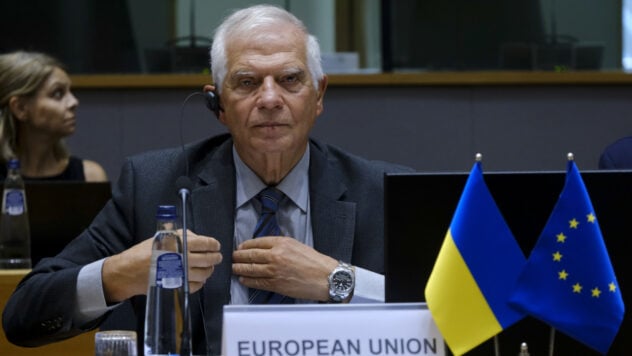
Due to Hungary’s actions to block aid to Ukraine from the European Union, as well as due to the travel of Hungarian Prime Minister Viktor Orban to Moscow and Beijing, there will be consequences for official Budapest.
This was stated by the High Representative of the European Union for Foreign Policy and Security, Josep Borrell, after a meeting of the European Council on foreign affairs, the agenda of which included, among other things, the issue of supporting Ukraine.
Aid blocking for Ukraine
The EU's chief diplomat did not name the specific Alliance country that is blocking aid to Ukraine, but from the context it became clear that we are talking about Hungary, which again suspended the tranche for financial support.
Currently watching
— The majority of Member States insisted on the need to lift the block on this payment, which had been deferred for a year. At the same time, they stressed the importance of moving forward with the decision to introduce a new aid fund for Ukraine, which had been blocked by one member state. Member States have insisted that this is unacceptable, but unfortunately the blocking situation continues, — Borrell reported.
Criticism of Orbán’s trips to Moscow and Beijing
In addition, Borrell said, at the meeting, almost all EU foreign ministers criticized the trips of Hungarian Prime Minister Viktor Orban to Moscow and Beijing, in which he discussed with Russian President Vladimir Putin and Chinese President Xi Jinping “ peace plan” regarding the Russian-Ukrainian war. These trips have not previously been agreed upon with any of the EU countries.
— With one single exception, I can say that all Member States were very critical of these actions, — said Borrell.
The EU's chief diplomat also did not name the country that did not criticize Orban, but it is likely that we are talking about Slovakia, whose leader has close ties with the Hungarian prime minister.
— It is Putin who is a party to the war. It is Putin who is calling for the division of Ukraine as a precondition for negotiating a ceasefire. And every day he reminds of this with thousands of drones, missiles and guided bombs and the advance of troops, — stated Borrell.
The EU High Representative added that Kyiv and Brussels want a speedy peace, but it must take place taking into account the territorial integrity and sovereignty of Ukraine.
— Any so-called peace mission that ignores these fundamental principles will only benefit Putin and will not bring peace, — he stated.
Transfer of the meeting of EU foreign ministers from Hungary to Belgium
In parallel, Borrell said that due to the actions of Hungarian Prime Minister Viktor Orban, who are directed against the current policy of the European Union, it was decided to move the next informal meeting of EU foreign ministers from the Hungarian capital, Budapest, to Brussels .
According to Borrell, there was no unanimous opinion on this matter among the EU foreign ministers, but he made efforts for unity.
— I tried my best to achieve unity. I listened to everyone, listened to all the arguments, trying to bring them together, perhaps halfway through. It was impossible. Some were ready to go to Budapest as usual. The others clearly didn't want to go. And others say: Ok, the high representative should decide, — says the EU's chief diplomat.
According to the bloc’s high representative, as of now the decision on holding the next meeting of the EU foreign ministers depends on him.
— After listening to everyone and spending hours discussing and trying to understand the reasons for both, I had to make a decision. I realized that we must send a signal, even if it is a symbolic signal, that by opposing the current policies of the European Union and discrediting the policies of the European Union, calling it a war party, (for Hungary, — Ed.) there must be some consequences. Let formal consequences, symbolic consequences. I think it is much more appropriate to convene the next informal meetings of the Foreign Affairs and Defense Council in Brussels when we return from vacation, — he explained his decision.
We recall that earlier the Prime Minister of Hungary, after beginning his presidency of the EU Council, made a tour, during which he first visited Kyiv, and then went to Moscow and Beijing, where he discussed some peacekeeping plans regarding the Russian-Ukrainian war, which were not agreed upon either with Ukraine or with the European Union.
Then both EU member states and bloc bodies, such as the European Commission or the office of the High Representative of the European Union, reacted to these actions of Orban.
In addition to Orban, Hungarian Foreign Minister Peter Szijjártó also met with the head of the Russian Foreign Ministry, which also became the subject of criticism from European allies.

